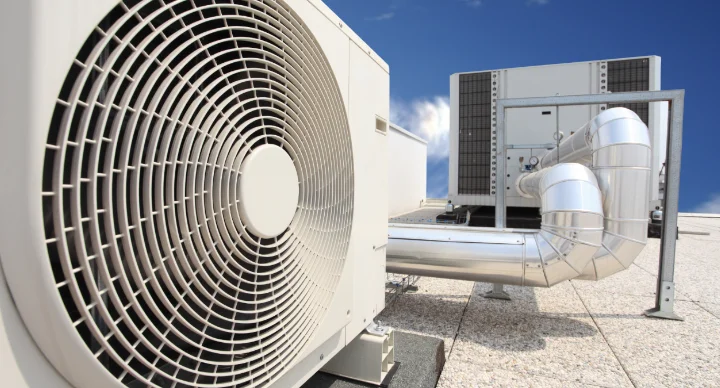Indoor air quality (IAQ) has become an increasingly important concern as people spend more time indoors. With the rise of energy-efficient buildings and the growing understanding of the effects of air pollution on health, ensuring clean air within indoor spaces is crucial. HVAC services are key in maintaining good indoor air quality, as they control a building’s temperature, ventilation, and filtration. We will explore how HVAC systems contribute to creating healthier living and working environments, highlighting their role in air filtration, humidity control, and overall air circulation.
The Importance of Air Filtration in HVAC Systems
Air filtration is a primary function of HVAC systems that directly impacts indoor air quality. HVAC units equipped with quality air filters help remove dust, allergens, and pollutants from the air, making the environment more breathable. In homes and commercial buildings, filters trap particles such as pollen, pet dander, and mold spores, which can cause allergies and respiratory problems. As HVAC systems circulate air, these filters capture harmful particles and prevent them from entering the indoor air supply. Regularly maintaining these filters is necessary to ensure their efficiency, as clogged or dirty filters can reduce airflow and allow contaminants to pass through.
Incorporating high-efficiency filters, such as HEPA filters, can significantly improve air quality by capturing even smaller particles. HEPA filters are particularly useful in environments where air quality is a significant concern, such as hospitals, offices, and homes with individuals suffering from asthma or respiratory conditions. HVAC professionals ensure these filters are installed correctly and replaced regularly to maintain optimal air filtration.
Humidity Control and Its Role in Indoor Air Quality
Humidity plays a crucial role in maintaining healthy indoor air quality. Too much moisture in the air can create an environment conducive to mold growth, while too little moisture can lead to dry skin, irritated eyes, and respiratory discomfort. HVAC systems regulate indoor humidity levels through dehumidification and humidification functions. Proper humidity control can prevent the growth of mold and mildew, which thrive in damp environments. Additionally, by ensuring the air is not overly dry, HVAC systems can help reduce respiratory irritation and other health issues.
In areas with high humidity, dehumidifiers integrated into the HVAC system help remove excess moisture, preventing the conditions necessary for mold growth. Conversely, humidifiers within the system in drier climates can introduce moisture into the air, ensuring that the environment remains comfortable and healthy. HVAC technicians are essential in assessing the humidity levels in a building and recommending the necessary adjustments to the system for optimal IAQ. This balance is crucial for creating a healthy, comfortable indoor environment.
Ventilation: The Key to Fresh, Clean Air
Proper ventilation is essential for indoor air quality, as it helps bring in fresh air while expelling stale air. HVAC systems with adequate ventilation ensure indoor spaces are not overwhelmed with carbon dioxide, VOCs (volatile organic compounds), and other pollutants that can accumulate in enclosed environments. These pollutants can have negative effects on both health and productivity. Through effective ventilation, HVAC systems ensure continuous air exchange between the indoors and outdoors, reducing the concentration of harmful substances and introducing fresh air into the space.
Mechanical ventilation systems, such as those used in HVAC setups, include air exchanges, exhaust fans, and fresh air intake mechanisms that improve air circulation. In modern buildings, energy recovery ventilators (ERVs) and heat recovery ventilators (HRVs) are also commonly used to improve ventilation while maintaining energy efficiency. These systems ensure that the air quality remains fresh and healthy even in tightly sealed buildings. HVAC professionals ensure the ventilation system is balanced, functioning correctly, and compliant with building codes to ensure proper air exchange.
The Role of HVAC Services in Preventing Indoor Air Pollution
Indoor air pollution is a growing concern, especially in cities with high levels of outdoor pollution or in spaces with little airflow. Depending on their maintenance and operation, HVAC systems can either exacerbate or mitigate indoor air pollution. Regular cleaning of ducts, vents, and coils is necessary to prevent the buildup of dust, dirt, and other contaminants that can reduce air quality. Additionally, poor maintenance can lead to the circulation of pollutants such as carbon monoxide, which can harm health.
HVAC contractors play a vital role in preventing indoor air pollution by performing routine checks and cleaning to ensure the system functions efficiently. When HVAC systems are not regularly maintained, they can become a source of pollutants, circulating dust, mold, and bacteria throughout the building. Professional HVAC technicians can perform detailed system inspections, clean air ducts, and ensure all components operate optimally. This regular maintenance reduces the risk of air pollution and contributes to cleaner, healthier air inside the building.
HVAC services are integral to maintaining optimal indoor air quality. From air filtration and humidity control to ventilation and energy efficiency, HVAC systems provide essential functions that contribute to healthier indoor environments. Regular maintenance and advanced HVAC technologies ensure air remains clean, comfortable, and pollutants-free. Property owners can enhance the health and well-being of everyone in the space by investing in proper HVAC services and taking steps to maintain these systems. As the importance of indoor air quality continues to grow, the role of HVAC services will remain critical in creating safe and healthy environments for residential and commercial buildings.

Shannon Reyes is a seasoned writer with a knack for crafting engaging blogs on a variety of service industries, including plumbing, cleansing, moving, pest control, and roofing. With a keen eye for detail and a passion for helping readers navigate complex topics, Shannon brings her expertise to life through informative and accessible content.











